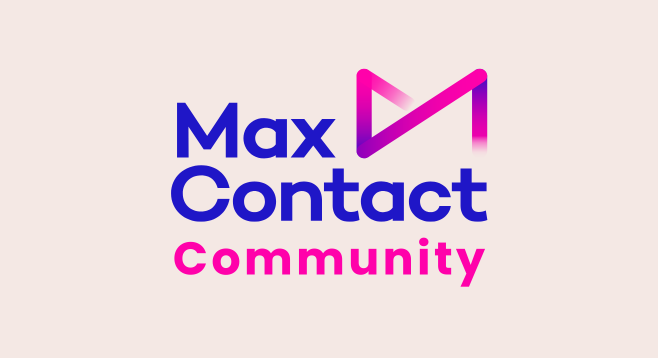Contents
The shift to hybrid working models has presented both challenges and opportunities for driving innovation in contact centres. In a webinar hosted by the Call Centre Management Association (CCMA), industry leaders gathered to share their experiences and insights on this topic. The panel featured Leigh Hopwood, CEO of CCMA, Louise Walsh, Chief Customer Contact Officer at Utilita, Nerys Corfield, industry-leading consultant, and Ben Booth, CEO of MaxContact. In this blog, we unpack the key points from the discussion.
Defining Innovation in the Contact Centre Context
The conversation began by defining innovation as the generation and implementation of new ideas that drive improvement. Panellists agreed that while the transition to hybrid working initially presented challenges, it has also opened up new possibilities for collaboration and creativity. Louise Walsh noted that engaging staff, whether in the office or working remotely, is key to fostering innovation. She emphasised the importance of giving everyone a voice and utilising remote technology to facilitate inclusive discussions.
Creating a Culture of Innovation
The panellists discussed the significance of having a clear purpose and aligned values to support innovation. Creating a culture that encourages experimentation, learning from failures, and celebrating successes is crucial. Ben Booth, CEO of MaxContact, highlighted the need for a safe working environment where people feel comfortable sharing ideas without fear of being shut down. He stated, “You have to create the structure and initiatives to get it going. You need champions in each department that are also doing the same because it shouldn’t just come from you as a leader.”
Strategies for Driving Innovation in a Hybrid Setting
To drive innovation in a hybrid setting, the panellists recommended several strategies:
1. Establish feedback loops: Ensure that ideas from all levels of the organisation, especially frontline agents, are heard, considered, and acted upon. Provide regular updates on the progress of suggested improvements to maintain engagement and motivation.
2. Utilise collaborative tools: Leverage technology platforms like Teams and Zoom to facilitate cross-functional collaboration and idea sharing, regardless of location.
3. Implement structured innovation processes: Consider techniques such as hackathons, agile sprints, and continuous improvement teams to provide focus and momentum for innovation initiatives.
4. Foster effective communication: Maintain clear and consistent communication channels to keep everyone informed about ongoing projects, successes, and learnings. Regularly share updates through team briefs, open forums, and dedicated innovation channels.
5. Celebrate successes: Take time to recognise and celebrate the successful implementation of innovative ideas. This helps to reinforce a culture of innovation and encourages further participation.
The Role of Leadership in Fostering Innovation
The panellists emphasised the importance of leadership commitment and effort in driving innovation. Senior leaders must prioritise innovation, allocate resources, and actively participate in the process. They should model the desired behaviours and create an environment where experimentation and learning are valued. Ben Booth stressed the need for continued effort, saying, “Once you think you’ve got it, you have to double down and keep going. Because if you take your foot off the gas, it’s amazing how fast it actually stops.”
Overcoming Challenges and Embracing Opportunities
While hybrid working presents challenges for fostering innovation, it also offers opportunities for greater inclusivity and diverse perspectives. Louise Walsh noted that remote technology has given everyone a voice, helping to bring people on a journey of innovation. By involving a diverse range of perspectives, contact centres can effectively identify areas for improvement and generate fresh ideas.
The Path to Hybrid Success
Fostering innovation in a hybrid working environment requires a deliberate and sustained effort from the entire organisation. By creating a culture of openness, collaboration, and continuous improvement, contact centres can harness the collective creativity of their teams to drive meaningful change and deliver exceptional customer experiences. As the industry navigates this new landscape, the insights shared by these leaders serve as valuable guidance for contact centres looking to thrive in the era of hybrid work.
Catch Up On-Demand
Looking for more hybrid working insights? Watch the full webinar discussion below.
To find out more about how MaxContact’s cloud-based platform can help your contact centre thrive in a hybrid world, book a demo with our team today.





